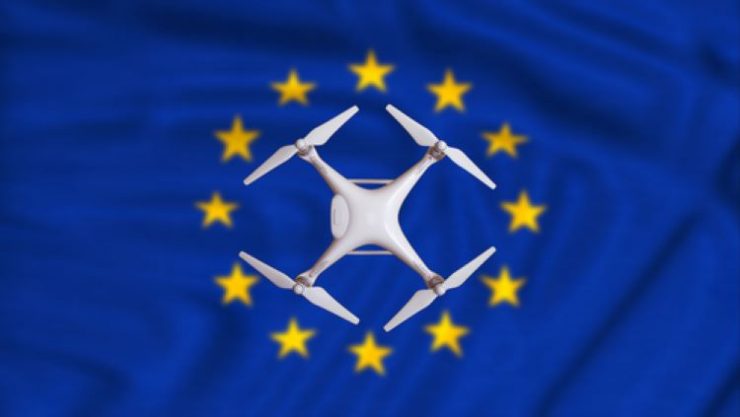Four drone associations: Drone Alliance Europe (DAE), the Small UAV Coalition, the Global Unmanned Traffic Management Association (GUTMA) and UAV DACH, issued a common vision on U-space services and the basic principles of U-space architecture during Amsterdam Drone Week. The European Union is currently developing a set of U-space services and procedures to support safe, efficient and secure access to airspace for drones.
According to the statement, the associations fully endorse the objectives of the European Aviation Safety Agency (EASA) set forth in its U-space services Draft Opinion to:
- Promote safe, secure and environmentally friendly operations of aircraft in the U-space airspace while respecting the privacy of European citizens;
- maintain the current safety levels for manned aviation;
- create conditions for an internal EU market for U-space services; and
- ensure fair and affordable access to the U-space airspace to all airspace users.
“In support of these objectives, DAE, GUTMA and their respective members have provided to EASA a comprehensive list of constructive comments and suggestions to help EASA with the further work needed on the Draft Opinion.
“Digitisation is essential to address the growing number of drone operators and operations. It is important to note that in a digital ecosystem, trusted data might be provided by multiple authorised entities. However, data sharing must be governed by common rules with mechanisms to ensure authentication, consistency and integrity. We support a federated system of U-space service providers that is risk-based, operator focussed, and performance-centric.
“We support global U-space/UTM harmonisation and encourage regulation to reflect industry standards; we are engaged with standards bodies around the world including the International Standards Organisation (ISO and ASTM International, among others. However, it is essential that harmonisation with already existing airspace regulations is done, and we recognise that efforts remain to evaluate the impact that any new U-space regulation might have on these, is carefully examined. We favour a system that provides clear allocation of responsibilities and thus ensures efficient cooperation among all U-space stakeholders. Given the variety of European stakeholders, the availability of open source solutions and the application programme interfaces (API) are needed to provide the necessary flexibility and interoperability between member state U-space services.
“While the types of U-space providers are diverse, there are entities who want to provide services throughout Europe, in a single European market. There are also those who intend to provide services in just a single country. The ability to serve Europe or a country provides flexibility for a range of business models. Common rules and U-space services will help UAS operators scale safer and more secure operations. A successful European U-space regulation must be an enabler for broader and more complex UAS operations.
“A federated U-space ecosystem is the best way to develop a sustainable European drone market that is responsible, trusted and flourishing. The members of our respective associations are committed to support the Agency, the European Commission and EU member states in their work.”
Also taking place during Amsterdam Drone Week, Global standards organisation ASTM International and the GUTMA signed a memorandum of understanding aimed at helping air traffic managers leverage standards to integrate drones into airspace systems worldwide. The stated purpose of the MOU is to increase the ability of both organizations to support Unmanned Aircraft Systems Traffic Management (UTM) stakeholders. Specifically, the agreement aims to:
- Enhance their understanding of international standards,
- Grow their knowledge and participation in the development of international standards and the technical documents that are most influential to international trade; and,
- Help meet their technical needs by offering access to ASTM International standards.
The MOU supports GUTMA members’ direct participation in ASTM International technical committees that develop drone-related standards, allowing them to provide input, cast votes, and give feedback on proposed standards and standard revisions. Meanwhile, ASTM International staff and members will more closely link with GUTMA working groups, committees, and networks, helping meet emerging needs in areas such as standards-based training.
An important aspect of unmanned traffic management (UTM) systems is Remote ID, which is a way for traffic managers or law enforcement bodies to identify a particular drone by using an assigned identification, similar to the role of a license plate on a motor vehicle.
“Remote ID is paramount for the continued integration of drones, and we believe that the ASTM International Remote ID standard, currently under development, will promote growth while maximizing the safety of our airspace and the communities with which we will interact,” said Reinaldo Negron co-President of GUTMA. “Working with standard bodies like ASTM International on UTM interoperability supports the Global UTM Association goal of global harmonization. We’re excited to see so many GUTMA members participating in the current standard development process, and we want to ensure our membership has access to and a voice in these global standards going forward.”
For more information visit:




